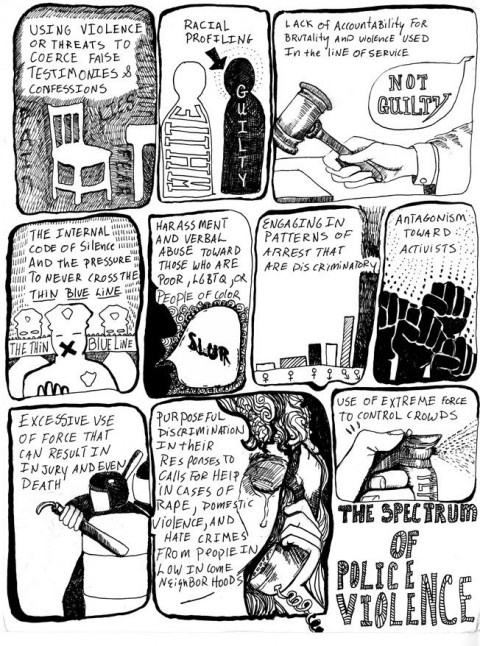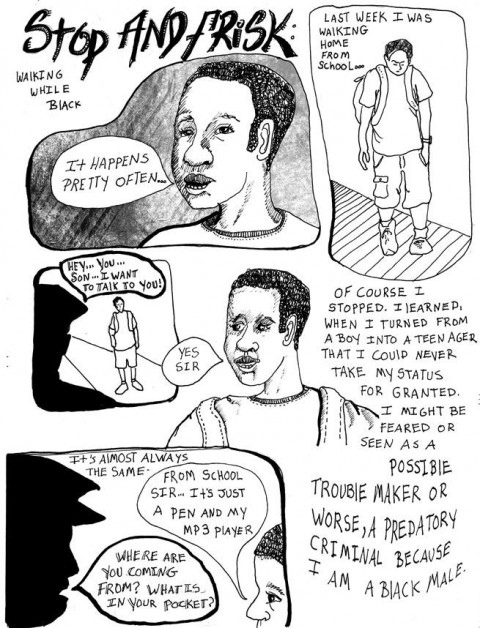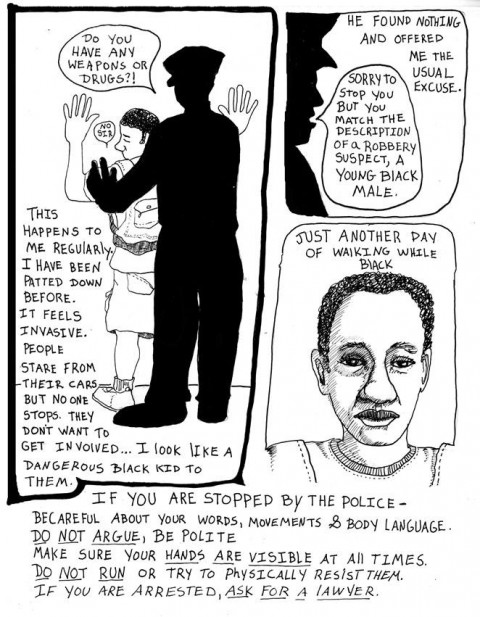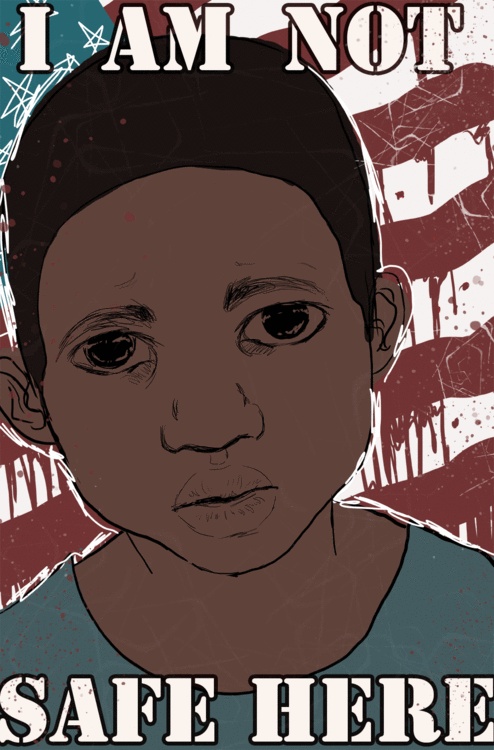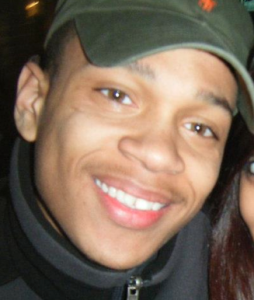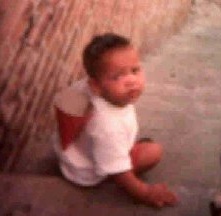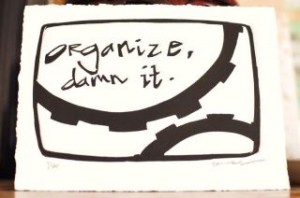One of the great privileges of my life is that I am blessed to be able to constantly learn new things. As I have been working on a pamphlet about “historical resistance to police violence in Harlem,” I came upon the name of someone I didn’t know – William Epton. Since I stumbled upon him last year, I have become consumed with learning as much as I can about this fascinating and courageous man.
William (Bill) Leo Epton was born on January 17, 1932 at City Hospital in New York city. His father William Epton was a laborer born in Georgia and his mother Lucy Green Epton was born in New York. Bill Epton was educated in NYC public schools and graduated from DeWitt Clinton High School. Like many black men of his era, Epton was a military veteran. He entered active duty in 1952 and fought in the Korean war where he was honored with a number of awards including two bronze stars. He was honorably discharged from the Army in 1954.
Epton was slender man, 170 lbs with brown eyes and a mustache. He worked mostly as an electrician and machinist during this lifetime. In 1959, he became a member of the Communist Party. He eventually became the chairperson of the Harlem branch of the Progressive Labor Party (PLP). Time Magazine once dubbed him “Mao’s Man in Harlem.” I requested a copy of his FBI file and it is filled with details about the meetings that he attended, the actions that he led and much more.
It was the Harlem Riots of 1964 that brought Bill Epton to public attention. On July 16, 1964, NYPD Lieutenant Thomas Gilligan (who was white) shot and killed 15-year-old James Powell, a young black boy. The accounts of the shooting are conflicting but some eyewitnesses suggested that Gilligan fired without warning and then shot twice more eventually killing the teen. Black people in NYC were infuriated by this incident. They viewed the killing as unjustified and as one more in the long line of racist incidents of brutality by the NYPD.
PLP’s Harlem branch, which had been agitating in street rallies against police brutality for several months, distributed hundreds of posters proclaiming, “Wanted for Murder, Gilligan the Cop.”
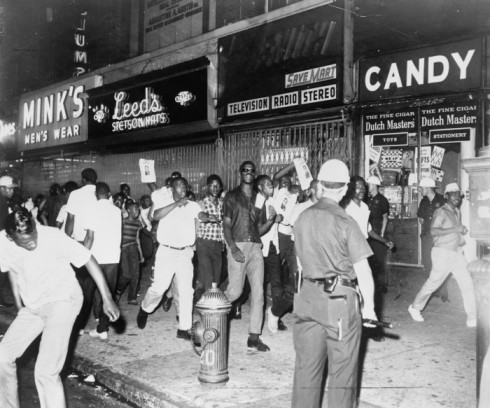
Photo by Dick De Masico, 1964 - Protestors Marching With Posters of Lt. Gilligan
During a Harlem protest about the Powell-Gilligan incident, Epton gave a speech on a soapbox declaring: “We’re going to have to kill a lot of cops, a lot of the judges, and we’ll have to go against their army.” Months later he would recount what he said at the July rally:
“What I said was that we must fight back when the cops attack us. I said that the police have declared war on Harlem and Harlem must declare war back on them. They – the judges, the cops, the slumlords, the bosses – are the ones who institute violence and murder against the people. I called – openly and publicly – for revolutionary struggle by the people to defeat that reign of terror.”
Harlem went up in flames for over three days from July 18th to July 21st 1964.
Several days later, Epton and attorney Conrad Lynn of the Freedom Now Party were arrested as they attempted to lead another Harlem march on July 25th. They had been warned by the police that they did not have a permit to protest. Subsequently Epton was also charged with “criminal anarchy,” “seeking to overthrow the government of the State of New York,” and “advocating the assassination of public officials.” Epton faced 20 years in prison for these charges.
 Before facing his sentence for a conviction of “criminal anarchy,” Bill Epton gave a speech to the court that he titled "We Accuse". It is well worth reading the entire speech but I want share his opening below because it is so powerful and meaningful:
Before facing his sentence for a conviction of “criminal anarchy,” Bill Epton gave a speech to the court that he titled "We Accuse". It is well worth reading the entire speech but I want share his opening below because it is so powerful and meaningful:
I would like to address a few remarks to this court and its government.
You have judged me “guilty” and have labeled me a “criminal” and also “dangerous.” I have been found “guilty” by a “jury of my peers.” On this I will have more to say later.
Now – let me examine what I have been found “guilty” of doing and saying:
I have been found “guilty” of agitating against the conditions that my people are forced to live under in New York and all over the country.
I have been found “guilty” of protesting the murder – yes, murder – or legal lynching, whatever you choose, of James Powell by Thomas Gilligan, a New York policeman.
I have been found “guilty” of organizing the Harlem community against police brutality that has been occurring in the Black ghettos for hundreds of years. I have been found “guilty” of standing up for the right of all men to be free – to be free from the system of exploitation of man by man.
I have been found “guilty” of proclaiming that capitalism is an oppressive system and that socialism is the only solution for mankind to live in peace and humanity.
I have been found “guilty” of demanding that the U.S government take its troops out of Vietnam and stop its genocidal war against the Vietnamese people.
I have been found “guilty” of asking the question of Black boys and men, “What are you doing in the U.S. Army fighting your colored brothers around the world who are engaged in battle against the same government that is oppressing you?” and “Is it in your interest to kill and be killed to support a racist government?”
I have been found “guilty” of being an outspoken critic of the U.S. government and its paramilitary police force.
I have been found “guilty” of publicly advocating socialism to cure the ills of the Black people of the country and the workers in general.
And finally – I have been found “guilty” of being a communist – and a Black one at that!
If these are the “crimes” that I have been found “guilty” of committing, then I am “guilty” a thousand times over. In fact, I will be “guilty” of these “crimes” as long as the conditions exist, and I will fight against these conditions as long as there is a breath in my body!
I haven’t had a chance to read through the 1,100 pages of his FBI file yet. I plan to write more about him once I do. In the meantime, read his entire speech to the court. I can’t think of anything more relevant to our current struggles. And ummmm, one last thing: special note to black folks, our people have been resisting police violence for like generations so time for our generation to embrace that fight (as I know so many of us already are). It’s truly a badge of honor for us to be standing on the shoulders of people like Bill Epton among so many others who are better known to us.
 Emmett Till
Emmett Till